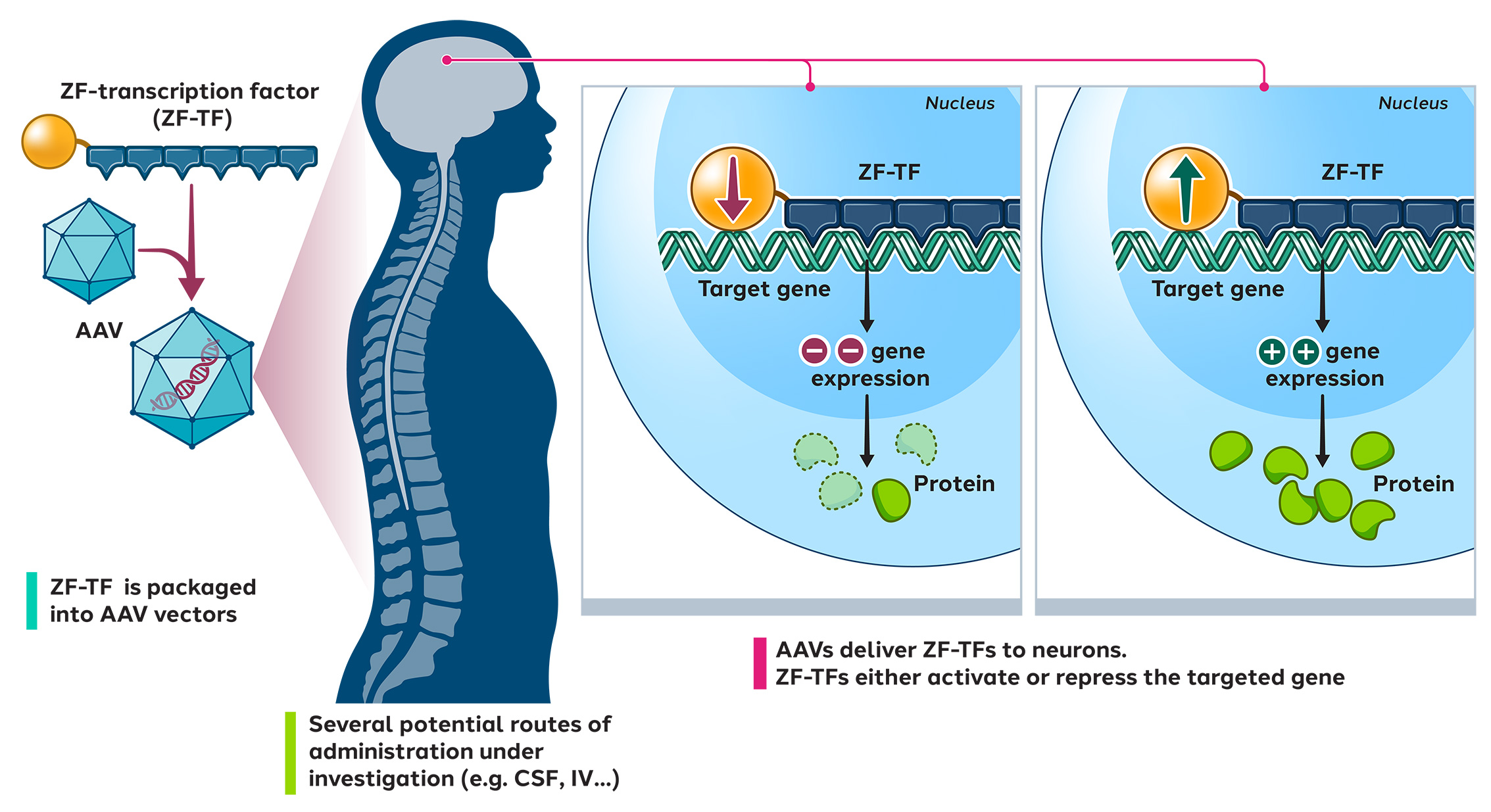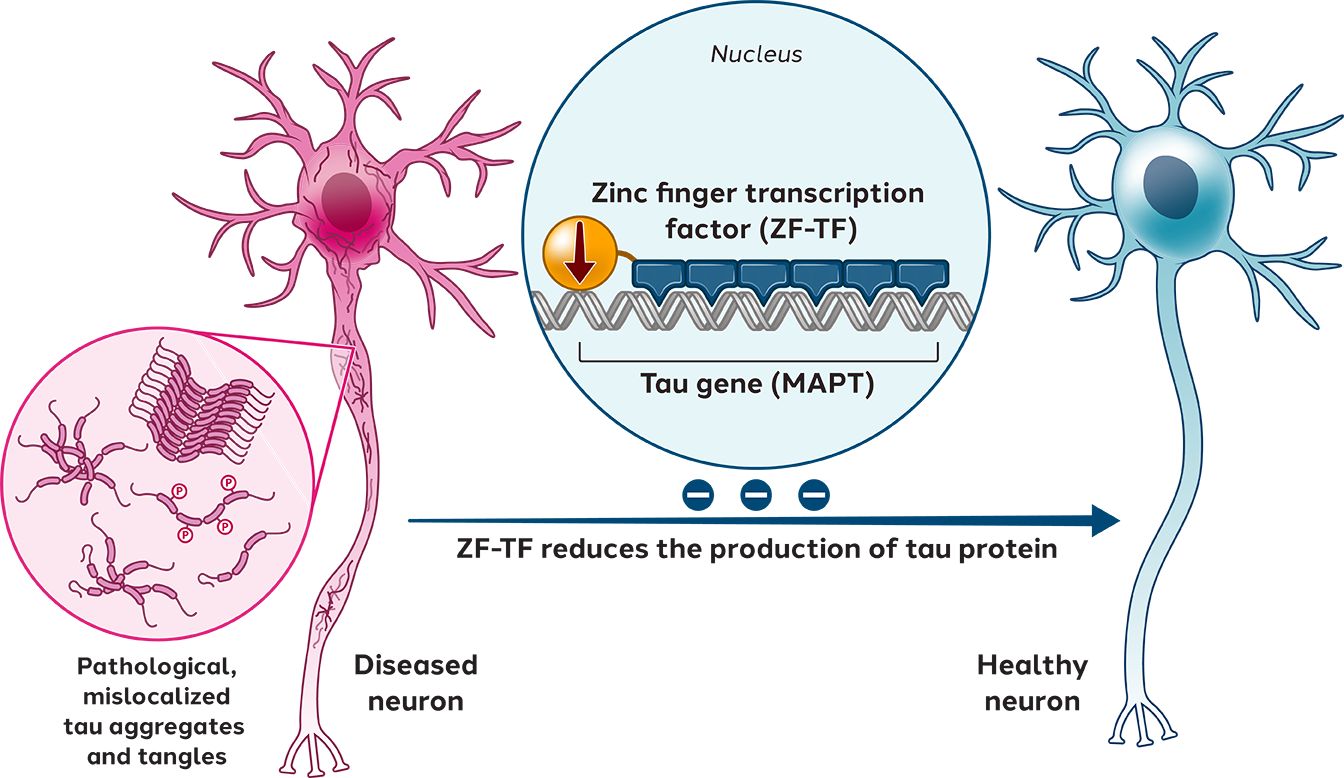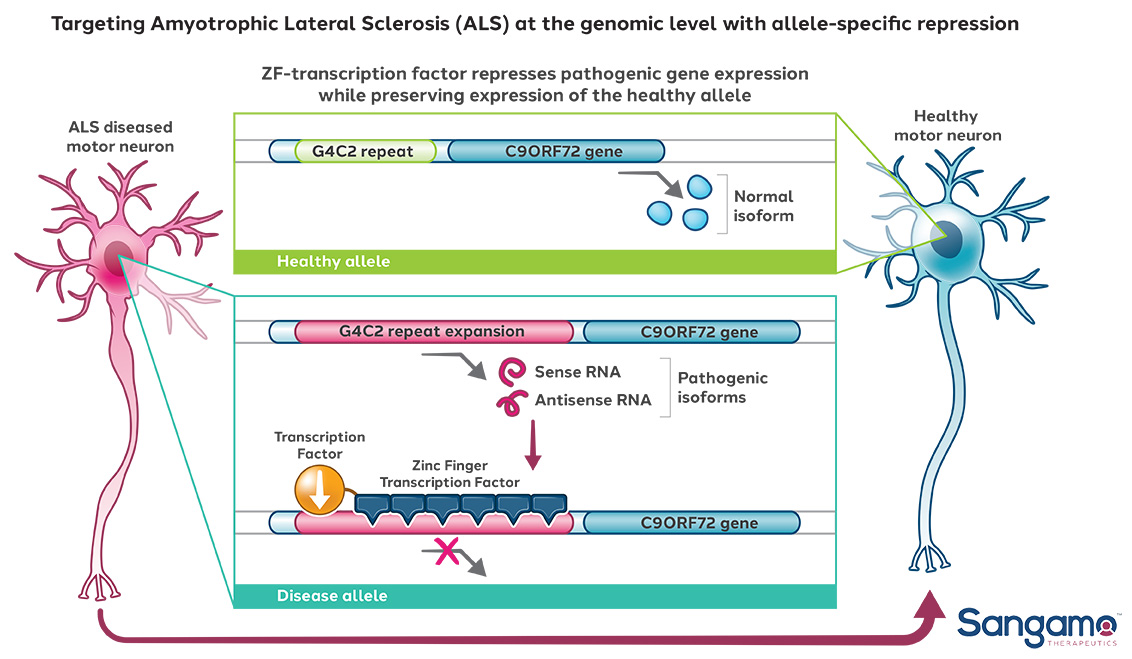


ZF-transcription factors are incredibly specific and can be designed to selectively repress only the disease allele, while sparing expression of the healthy copy.

Delivery to the central nervous system (CNS) is a major hurdle for clinical applications of genomic medicine, as the blood–brain barrier (BBB) limits the brain distribution of virtually all intravenously administered macromolecules. Sangamo’s SIFTER™ platform (Selecting In vivo For Transduction and Expression of RNA) allows us to engineer adeno-associated virus (AAV) capsids with potentially improved CNS transduction efficiency, as we aim to enable therapeutic application of genomic medicines.
